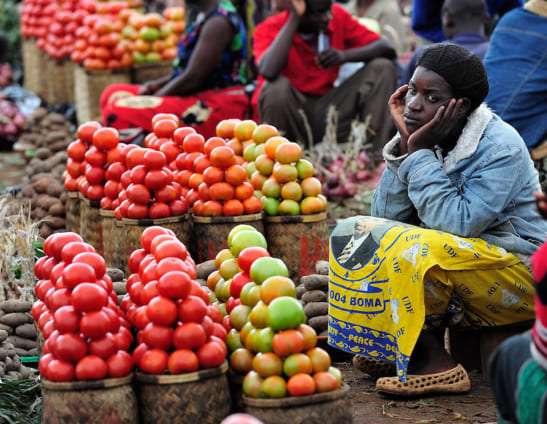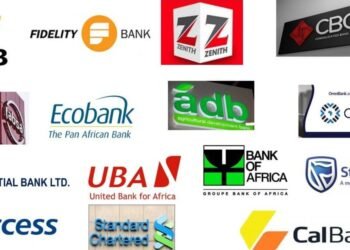The Institute of Economic Affairs (IEA) has raised critical concerns about Ghana’s monetary policy, particularly regarding the country’s Policy Rate (PR), which the institution claims has failed to effectively control inflation.
In a recent assessment of Ghana’s economic performance, the IEA noted that the Policy Rate is artificially high, rendering it ineffective in addressing inflationary pressures. This situation, according to the IEA, places Ghana in a precarious economic position, with the country’s monetary policy remaining one of the tightest in Sub-Saharan Africa (SSA).
In its Economic Outlook report for July and August 2024, the IEA pointed out that while Ghana’s inflation has experienced a significant decline, the Policy Rate has barely adjusted in response.
Between December 2022 and July 2024, inflation fell from 54.1% to 20.9%, a remarkable 33.2 percentage point drop. However, during the same period, the Bank of Ghana (BoG) only reduced the Policy Rate by a mere 1.0 percentage point.
This glaring disparity between the declining inflation and the near-static Policy Rate signals a disconnect, the IEA asserted. “The huge disparity between the declines in inflation and the PR suggests a disconnect between inflation and the PR,” the report stated.
The IEA, meanwhile, attributed this to the supply and cost factors driving Ghana’s inflation, which cannot be effectively tackled through demand-based monetary policies like the Policy Rate.
An Ineffective Tool
The IEA’s analysis suggested that Ghana’s Policy Rate, currently at 29%, has been ineffective in curbing the country’s inflation. The institution highlighted that inflationary pressures in Ghana have primarily been driven by supply-side issues, including rising global commodity prices, supply chain disruptions, and currency depreciation.
As such, traditional tools like the Policy Rate, designed to manage demand-side inflation by tightening or loosening the money supply, have not yielded the desired effects in this context.
Instead, the IEA recommends a more targeted approach to inflation control, one that addresses the supply and cost drivers directly. This would require collaboration between the Bank of Ghana and the government to implement policies that tackle the root causes of inflation rather than relying solely on monetary tightening measures.
Ghana’s Policy Rate Among Highest in Africa
Adding to its critique, the IEA highlighted that Ghana’s Policy Rate is one of the highest in real terms across Sub-Saharan Africa. Moreover, the International Monetary Fund (IMF), in its recent evaluations, also flagged Ghana’s unusually tight monetary stance.
Despite this aggressive tightening, the IEA noted that Ghana’s inflation has remained among the highest in the region, raising concerns about the effectiveness of the current policy.
A high Policy Rate typically signals a restrictive monetary environment, where borrowing becomes more expensive, thereby curbing demand and slowing inflation.
However, in Ghana’s case, the persistently high inflation despite the steep Policy Rate calls into question the effectiveness of this approach. It suggests that factors other than domestic demand are at play, further supporting the IEA’s argument that supply-side inflation drivers need to be addressed.
Call for a Policy Rate Cut
Given the significant decline in inflation, the IEA has called for the Bank of Ghana to cut the Policy Rate by at least 200 basis points to reflect the improved inflation situation.
However, the institute acknowledged that the Bank of Ghana’s hands may be tied due to the country’s ongoing program under the Economic Credit Facility (ECF) with the IMF. The ECF requires Ghana to maintain a tight monetary policy stance as part of its loan conditions, limiting the BoG’s ability to implement substantial rate cuts.
Despite these constraints, the IEA stressed that a meaningful reduction in the Policy Rate is essential to stimulate economic growth. A lower rate would ease the cost of borrowing for businesses and individuals, encouraging investment and consumption.
In the current climate, where inflationary pressures have eased significantly, maintaining an excessively high Policy Rate could stifle economic recovery and undermine growth prospects.
BoG’s Cautious Approach
The Bank of Ghana’s decision to maintain the Policy Rate at 29% for a third consecutive meeting in July 2024 reflects its cautious approach to monetary policy.
The central bank cited concerns about inflationary pressures stemming from strains on the local currency, the Ghanaian cedi, which has faced depreciation against major foreign currencies. As a result, the BoG opted to keep the Policy Rate steady to guard against potential inflation spikes.
While the BoG’s concerns are valid, the IEA argues that a more balanced approach is needed— one that acknowledges the progress made in reducing inflation and the need to support economic activity.
A measured reduction In the Policy Rate, as recommended by the IEA, could strike the right balance between controlling inflation and fostering economic growth.
Of recent, Ghana’s high Policy Rate has come under increasing scrutiny, with the IEA leading the charge in questioning its effectiveness. The disconnect between the significant drop in inflation and the minimal reduction in the Policy Rate has raised concerns about the current monetary policy framework.
READ ALSO: NDC Demands Forensic Audit of Voters Register over System Flaws



















